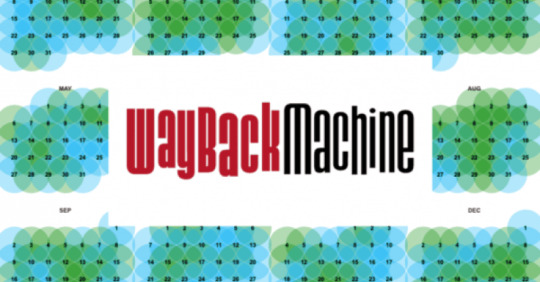#software for small law firm
Link
This blog explains the challenges small-sized law firms face during their growth-cycle. The blog lists down challenges of a law firm including cost control, industry competition, work-life balance, professional development, legal tech, and more.
#small law firm software#software for small law firm#small law office software#manage small law firm#manage law firm#law firm software#small law firm#legal tech
3 notes
·
View notes
Link
0 notes
Text







At the other end of the table Helene gives a gentle laugh and spears a glistening piece of steak with her fork. Tom takes a long drink from his beer glass, as if toasting his own wit. Connor sets his fork down on his plate. Saffron tries to make eye contact with him but he is staring at the wooden salt and pepper shakers, his jaw clenched.
“That's not true at all,” Saffron says to Tom. "Why would you even say that?"
“Saff, it's okay," says Connor. “Dad just thinks he's being funny. Don't worry about it."
“All I'm trying to say is that Helene and I are exceedingly grateful to you for all you've done for Connor this term," says Tom. He bestows his shark-like smile upon her once again, but she doesn't smile back. “I meant academically, but I’m sure you’ve helped him in myriad other ways as well. We’ve noticed a lot of positive changes, haven’t we Helene?"
“Oh, definitely,” says Helene.
“What are you talking about? You wouldn't notice if I grew two heads,” says Connor.
“Watch the attitude, son,” says Tom. His tone is pleasant, and sends a small shiver down Saffron's spine.
“I'm glad to hear that you think I'm a positive influence, because I was paranoid you'd think I was a bad influence after I made Connor skip school with me the other day," says Saffron. Tom looks at her blankly, his eyebrows raised.
“I didn’t hear anything about this,” says Tom. “Did you, Hel?”
“I think I may have received a voicemail or an email from the school, now that you mention it,” Helene says. “I probably just assumed it was a message asking me to donate to the second-hand uniform sale or something.”
“Wow," says Saffron. “My mother went off her head.”
“Saffron’s mother is a police officer,” Helene tells Tom, as if this is the sole explanation for her reaction.
“Ah,” says Tom. “And what does your father do, Saffron?”
“Here we go,” mutters Connor.
“He operates a chain of childcare centres,” says Saffron.
“Really,” says Helene. “What's the name of his business?”
“Little Sprouts,” says Saffron. Both Helene and Tom make noises signifying their recognition and approval.
“Oh, I’ve heard they’re doing very well!” Helene says. “Didn’t he just open several more centres?”
“Yeah, he’s got five now,” says Saffron.
“Does he use an accountancy firm?” says Tom. Connor mutters something under his breath.
“I think Mireille- his girlfriend- does all the accounting,” says Saffron.
“There’s a wise saying that I like to tell my clients, Saffron,” says Tom. “And that saying is: 'It’s not the money that matters, it’s how you use it that determines its true value'.”
He pauses for effect.
“Woah. Interesting,” Saffron deadpans while Connor stifles a loud yawn. Helene narrows her eyes at him.
“Now, I’m sure your Dad’s girlfriend is more than competent in the area of bookkeeping and handling the payroll and the rest of the basics, but how up to date is she with the latest tax laws?” says Tom. “Does she know how to forecast cash flow? Does she realise the importance of accurate record keeping? Does she have access to the most up-to-date accounting software, which will enable she and your father to maximise business efficiency and productivity?”
"I have no idea," says Saffron sweetly. "But I'm guessing you do, right?"
98 notes
·
View notes
Text
The CrowdStrike Outage Impact on Law Firms
In case you weren't aware, late last night into early this morning, CrowdStrike, a cybersecurity firm, sent out an update to Microsoft software which led to a global outage due to patch issues within their Falcon virus scanner platform. Many law firms around the world employ this software, with the relationship only growing since the partnership with Factor to assist in higher-stakes transactional legal work.
How did the outage actually impact the legal world at large, though? Let's break it down.
Lawyers and law firms were generally unaffected beyoind small-scale inconvenience—at least in the United States. For example, the New York Unified Court System was impacted, as were law publications like Law.com. As stated above, most law firms, courts, and tribunals nationwide were minority impacted or felt no impact whatsoever, as is the case with the Bar Council and sets of chambers. The extent of damages otherwise was limited to temporary disruption to operation, website glitches, and indirect impact on suppliers. UK law firms, though, experienced the bulk of the chaos as it concerns bank communications and payment transfer issues, particularly with staff who aren't member-facing. These issues also appear to have been mostly resolved quickly.
Internationally, impacted firms are using the outage as an opportunity to affirm contingency plans, and similar business continuing policies are in place, as well as
Alex Brown, the head of digital business for international law firm Simmons & Simmons, wrote the following on his LinkedIn: “As we rely more on digital infrastructure, ensuring robust and resilient systems is becoming paramount for companies and society. This event will likely draw increased regulatory and government attention to safeguarding our digital operations.”
It's obvious the outage has had a massively felt impact, but will anybody face consequences?
CloudStrike Holdings, Inc. could face related legal ramifications, as Pomerantz LLP is investigating whether various employees at CrowdStrike were engaged in illegal business practices, such as securities fraud, on behalf of CrowdStrike's investors and interested parties.
Needless to say, it's a technological shit show.
While this post is about the impacts on the legal world, CrowdStrike did release a statement on the situation that I will share here.
“We’re deeply sorry for the impact that we’ve caused to customers, travellers, and anyone affected by this, including our companies." - CrowdStrike CEO George Kurtz via NBC reports.
Was anybody impacted by the CrowdStrike Windows outage last night? Personally, I was not. I was working late and was on a midnight call with a client when I heard about it, but since I was using my work iPhone and wasn't actively accessing any systems at the time; I only found out last night from a friend of mine who works bank security on the East Coast. That said, though, when I walked into work this morning, conversation was ablaze on the topic; although none of us reall had any tangible harm done, it was still an interesting discussion over our morning coffee.
What about you, though? Were you affected?
#law by rhys#lawbyrhys#lawyer#lawyers of tumblr#attorney#attorneys of tumblr#big law#law#lawblr#real lawblr#law content#lawyer reacts#law firm#legal system#security law#securities law#privacy law#antitrust law#transactional law#corporate law#business law#windows#crowdstrike#falcon#factor#this is not legal advice#tinla
9 notes
·
View notes
Text
Hamas didn’t invade Israel on Oct. 7 for its amusement. The barbaric sneak attack is a part of the pogrom intended to wipe out the Jewish state. It was a crime against humanity, and not just because of its savagery. We would all be worse off if Israel ceased to exist. The same cannot be said for Islamic terrorists.
Israel’s contributions to the modern world are momentous. When not dodging bullets, rockets, and homicide bombers, Israelis have since 1948 developed:
Copaxone and Rebif, drugs that treat multiple sclerosis, and Exelon, which treats mild to moderate dementia in Alzheimer’s and Parkinson’s patients.
The PillCam, “a minimally invasive ingestible camera in a capsule that allows visualization of the small bowel.”
The water desalination process.
The Sniffphone, “that can actually ‘sniff out’ diseases.”
And SpineAssist, “the first-ever spine robot” that has the “ability to provide real-time intraoperative navigation.”
The Weizmann Institute of Science in Rehovot, Israel, responsible for some of the inventions listed above, has also produced diabetes and flu vaccines, is using T-cells to treat damaged spines, and is a pioneer in industrial — and medical — uses nano materials.
Other impactful Israeli products include drip irrigation, a revolutionary microprocessor called the 8088, the NIR heart stent, voice-over-internet protocol, the USB flash drive, the Waze navigation app, ReWalk, “a commercial bionic walking assistance system,” and “the first commercially viable firewall software.”
Our own security has benefited from Israel’s labor and work ethic.
“Many Israeli innovations are present in upgrades to U.S. Air Force fighters and Army equipment,” says the international law firm Smith, Gambrell & Russell. One important advance in particular is the helmet-mounted display system for the new F-35 Joint Strike Fighter.
So we have a country of 9.23 million, mostly desert, that is only 75 years old, is “surrounded by enemies” and in a constant state of war, which has “no natural resources,” yet “produces more start-up companies on a per capita basis than large, peaceful, and stable nations and regions like Japan, China, India, Korea, Canada, and all of Europe.” It is the only nation outside of the U.S. that Warren Buffet invests in.
Have the Palestinians or Hamas, currently at war with Israel, done anything that compares to what the Israelis have achieved? More broadly, beyond the Allahista terrorist groups, what has Islam contributed to the modern world?
Not much.
Since 1901, Jews, who total 0.2% of the world’s population, have won 189 Nobel prizes for physics, medicine, chemistry and economics. Over that same period, Muslims, who make up nearly a quarter of the global population, have won four.
If it seems as Islamic groups, Hamas and Hezbollah prominent among them, are more interested in spreading nihilism, committing atrocities, and destroying civilization than making the world a better place, well, then there’s a good reason for it. That is exactly what the heroes of an increasingly large number foolish Westerners are aiming for.
Meanwhile, Israelis see themselves “as having a role in the world to repair the world,” says Chemi Peres, managing partner and co-founder of the venture capital firm Pitango, chairman of the Peres Center for Peace and Innovation, and son of the late Israeli Prime Minister Shimon Peres.
“We call it tikkun olam, and here at the Peres Center we have a mission statement, which is to introduce innovation and new ideas and new technologies, not only for ourselves but to solve the problems of the world.”
Islam is part of that world, but too many of its adherents live to do just the opposite.
— Written by the I&I Editorial Board
37 notes
·
View notes
Text
This day in history

I'm on tour with my new, nationally bestselling novel The Bezzle! Catch me on SUNDAY (Mar 24) with LAURA POITRAS in NYC, then Anaheim, and beyond!

#20yrsago I just finished another novel! https://memex.craphound.com/2004/03/23/i-just-finished-another-novel/
#15yrsago New Zealand’s stupid copyright law dies https://arstechnica.com/tech-policy/2009/03/3-strikes-strikes-out-in-nz-as-government-yanks-law/
#10yrsago NSA hacked Huawei, totally penetrated its networks and systems, stole its sourcecode https://www.nytimes.com/2014/03/23/world/asia/nsa-breached-chinese-servers-seen-as-spy-peril.html
#10yrsago Business Software Alliance accused of pirating the photo they used in their snitch-on-pirates ad https://torrentfreak.com/bsa-pirates-busted-140322/
#5yrsago Video from the Radicalized launch with Julia Angwin at The Strand https://www.youtube.com/watch?v=FbdgdH8ksaM
#5yrsago More than 100,000 Europeans march against #Article13 https://netzpolitik.org/2019/weit-mehr-als-100-000-menschen-demonstrieren-in-vielen-deutschen-staedten-fuer-ein-offenes-netz/
#5yrsago Procedurally generated infinite CVS receipt https://codepen.io/garrettbear/pen/JzMmqg
#5yrsago British schoolchildren receive chemical burns from “toxic ash” on Ash Wednesday https://metro.co.uk/2019/03/08/children-end-hospital-burns-heads-toxic-ash-wednesday-ash-8868433/
#5yrsago DCCC introduces No-More-AOCs rule https://theintercept.com/2019/03/22/house-democratic-leadership-warns-it-will-cut-off-any-firms-who-challenge-incumbents/
#1yrago The "small nonprofit school" saved in the SVB bailout charges more than Harvard https://pluralistic.net/2023/03/23/small-nonprofit-school/#north-country-school
9 notes
·
View notes
Text

Surera Ward, CEO and founder of Girls Fix It, LLC
Girls Fix It, LLC, which she calls a technology solutions company specializing in cell phones, tablets, smartwatches, game consoles and computers.
Surera (pronounced “Shore-ah”) is part of the fastest-moving technology industry trend: consumer electronic repair and maintenance. Before starting Girls Fix It, she spent 20 years in the corporate sector, leading software development teams for Fortune 500 companies as an IT business analyst\project manager.
Ward taught herself to program in the 1990s when she worked in software development.
“Growing up,” she said, “I always liked to take things apart and fix them, like when a tape got stuck in the VCR machine. I got good at fixing.” At 19, Ward started a software development company in Delaware, Infinity Software Systems. After four years, she transitioned to teaching in schools in Wilmington and New Castle. Currently, Girls Fix It offers training to senior citizens, and Ward also does business consulting for Cellbotics, an electronic device repair training firm based in Atlanta.
But a major problem for Ward and others like her is the planned obsolescence that one also finds in the auto industry. After all, if a product works perfectly for many years, why buy a new one?
Ward is finding, for example, that once she and her two assistants have conducted a repair on a customer's phone, the device will “often throw up error messages hard-coded in by manufacturers to discourage users from going to third-party experts.”
And a practice known as “parts pairing,” which ties individual parts to the devices they're shipped with using unique serial numbers, has made it harder to repair them.
But consumers and small independent repair experts like Ward are fighting back. According to a recent WHYY report, a “Right to Repair” movement is gaining traction around the country. “Four states have passed laws that require manufacturers to make it easier for consumers to repair their devices – a cracked screen, broken phone camera or broken laptop,” according to the story. “There’s legislation in New Jersey, Delaware and a bill in the Pennsylvania Senate, and another in the House. Advocates of these laws say they will save consumers money, save the planet from tons of e-waste and will support small local businesses.”
Ward insists, “The 'Right to Repair' movement is for consumers and small businesses to have access to parts and schematics that they need. The manufacturers deliberately make the products hard to repair. Parts are often unavailable; schematics are often not accessible, and they create error messages. It's getting harder and harder to repair different devices. Any Apple iPhone 10 phone or better is very hard to repair. Legislation could help, but it would not fully resolve the issue.”
#solarpunk#solarpunk business#solarpunk business models#solar punk#reculture#girls fix it#women in tech#women founded business#repair#repair business#right to repair
6 notes
·
View notes
Text
Windows 11 is a fucking nightmare. It's a crime. I want to chuck a very very expensive machine out of a closed window frustrating. I want to set all the electronics on fire and revert to pen and paper but I can't because everything is digitised by law and NO MEDICAL SOFTWARE RUNS ON LINUX. I CAN BARELY ESCAPE THE HELLSCAPE AT HOME AND I USED TO BE ABLE TO RECONFIGURE WINDOWS 10 TO LABORIOUSLY GET RID OF THE SHIT PARTS BUT IF THIS IS WHAT 11 IS LIKE I WANT TO CLAW MY FACE OFF. I hope bill gates chokes on his morning coffee for half an hour every day and also everyone else who made the relevant managing decisions.
The first people to make medical software for Linux would have a very small but dedicated userbase. Even the Linux based firm made their product for windows.
9 notes
·
View notes
Text
Should you take an arch-technocrat at his word? I think so. Larry Ellison is the founder and former chairman of Oracle, the third-largest software company in the world. According to SFGATE, “The CIA was not just Oracle’s first customer. Founded in May 1977, the firm’s name came from a CIA project code-named “Oracle.” Small world, indeed. Listen to the video and be prepared to be shocked.
When I was in the software business in the 1990s, the VP of Sales at Oracle approached me about integrating my sales and marketing software into the growing stable of Oracle products. I thought I had struck it rich! That is, until I got a whiff of their internal culture. The sales manager for Oracle was a woman who affectionally called her sales team her “yuppie guppies.” How cute, I thought, until I asked one of her “guppies” what that meant. He explained that guppies eat their own offspring and if they didn’t make their sales quotas by hook or by crook, they would be escorted off the campus within the hour. Needless to say, I ran as fast as I could to get away from them.
Larry Ellison has never changed his spots over the years. He should have been branded as a menace to society long ago. ⁃ Patrick Wood, TN Editor.
On Thursday, Oracle co-founder Larry Ellison shared his vision for an AI-powered surveillance future during a company financial meeting, reports Business Insider. During an investor Q&A, Ellison described a world where artificial intelligence systems would constantly monitor citizens through an extensive network of cameras and drones, stating this would ensure both police and citizens don’t break the law.
Ellison, who briefly became the world’s second-wealthiest person last week when his net worth surpassed Jeff Bezos’ for a short time, outlined a scenario where AI models would analyze footage from security cameras, police body cams, doorbell cameras, and vehicle dash cams.
“Citizens will be on their best behavior because we are constantly recording and reporting everything that’s going on,” Ellison said, describing what he sees as the benefits from automated oversight from AI and automated alerts for when crime takes place. “We’re going to have supervision,” he continued. “Every police officer is going to be supervised at all times, and if there’s a problem, AI will report the problem and report it to the appropriate person.”
he 80-year-old billionaire also predicted that AI-controlled drones would replace police vehicles in high-speed pursuits. “You just have a drone follow the car,” he explained. “It’s very simple in the age of autonomous drones.”
Ellison co-founded Oracle in 1977 and served as CEO until he stepped down in 2014. He currently serves as the company’s executive chairman and CTO.
Sounds familiar
While Ellison attempted to paint his prediction of universal public surveillance in a positive light, his remarks raise significant questions about privacy, civil liberties, and the potential for abuse in a world of ubiquitous AI monitoring.
Ellison’s vision bears more than a passing resemblance to the cautionary world portrayed in George Orwell’s prescient novel 1984. In Orwell’s fiction, the totalitarian government of Oceania uses ubiquitous “telescreens” to monitor citizens constantly, creating a society where privacy no longer exists and independent thought becomes nearly impossible.
But Orwell’s famous phrase “Big Brother is watching you” would take on new meaning in Ellison’s tech-driven scenario, where AI systems, rather than human watchers, would serve as the ever-vigilant eyes of authority. Once considered a sci-fi trope, automated systems are already becoming a reality: Similar automated CCTV surveillance systems have already been trialed in London Underground and at the 2024 Olympics.
China has been using automated systems (including AI) to surveil its citizens for years. In 2022, Reuters reported that Chinese firms had developed AI software to sort data collected on residents using a network of surveillance cameras deployed across cities and rural areas as part of China’s “sharp eyes” campaign from 2015 to 2020. This “one person, one file” technology reportedly organizes collected data on individual Chinese citizens, leading to what The Economic Times called a “road to digital totalitarianism.”
Begging for GPUs
2 notes
·
View notes
Text
Bookkeeping in India by MASLLP: Streamlining Your Financial Processes
Bookkeeping is a crucial aspect of any business, ensuring that financial records are accurate and up to date. In India, businesses of all sizes are increasingly recognizing the importance of professional bookkeeping services. MASLLP, a leading firm in the financial sector, offers comprehensive bookkeeping services tailored to meet the unique needs of businesses in India.

Why Bookkeeping Matters for Your Business
Effective bookkeeping is the foundation of good financial management. It involves recording daily financial transactions, such as sales, purchases, payments, and receipts. Accurate bookkeeping helps businesses:
*Monitor Financial Health: By maintaining organized records, businesses can track income and expenses to assess their financial performance.
*Ensure Compliance: Staying compliant with Indian tax laws is crucial. Proper bookkeeping ensures that businesses meet legal requirements and avoid penalties.
*Facilitate Decision-Making: Well-maintained financial records help business owners make informed decisions about expansion, investment, and other key areas.
*Prepare for Audits: Bookkeeping simplifies the auditing process, ensuring all financial documents are readily available and accurate.
Challenges of Bookkeeping in India
Bookkeeping can be time-consuming and complex, especially for small and medium-sized enterprises (SMEs) in India. Some common challenges include:
*Regulatory Compliance: Businesses must adhere to constantly changing tax regulations, including GST and income tax laws.
*Managing Multiple Transactions: For businesses with high volumes of daily transactions, keeping track of every detail can be overwhelming.
*Handling Multiple Currencies: Many businesses in India deal with international clients, making currency conversion and documentation more complicated.
Why Choose MASLLP for Bookkeeping in India
MASLLP understands the specific challenges businesses face in maintaining accurate financial records. With years of expertise in accounting and bookkeeping, MASLLP offers solutions that are both efficient and cost-effective.
Expertise in Indian Regulations
MASLLP’s team is well-versed in Indian tax laws and accounting standards. They ensure that your business complies with all regulatory requirements, including GST filings, tax payments, and financial reporting.
Tailored Services for All Industries
No matter your industry or the size of your business, MASLLP provides personalized bookkeeping services to meet your specific needs. Whether you run a manufacturing firm, a tech startup, or a retail business, MASLLP can help.
Use of Cutting-Edge Technology
MASLLP utilizes the latest accounting software and tools to streamline the bookkeeping process. This technology minimizes errors and maximizes efficiency, giving you more time to focus on growing your business.
Comprehensive Financial Reporting
MASLLP delivers detailed financial reports that give you a clear picture of your business’s financial health. These reports can be customized to provide insights into key areas such as profitability, cash flow, and tax obligations.
The Benefits of Outsourcing Bookkeeping to MASLLP
Outsourcing bookkeeping to MASLLP offers several advantages:
*Cost Savings: Hiring a full-time in-house bookkeeper can be expensive. Outsourcing allows you to save on salary, benefits, and training costs.
*Increased Accuracy: With a team of experts handling your books, the chances of errors are minimized.
*Focus on Core Activities: By outsourcing bookkeeping, you can focus on your core business activities without worrying about managing financial records.
*Timely Services: MASLLP ensures that all bookkeeping tasks are completed on time, from tax filings to financial reports.
Conclusion
Bookkeeping in India is essential for maintaining a healthy business. With MASLLP’s expert services, you can rest assured that your financial records are accurate, up to date, and fully compliant with Indian laws. By outsourcing your bookkeeping needs to MASLLP, you’ll not only save time and money but also gain valuable insights into your business’s financial health.
Contact MASLLP today to learn more about how our bookkeeping services can help your business thrive.
#accounting & bookkeeping services in india#businessregistration#chartered accountant#foreign companies registration in india#income tax#auditor#taxation#ap management services#audit
4 notes
·
View notes
Text
For years, the Federal Bureau of Investigation has been unraveling what it asserts is a scam perpetrated by agents of North Korea, which used fake companies employing real IT workers to funnel money back to the regime’s military.
An American company played a key role in creating shell companies used as part of the scheme, a WIRED review of public records shows. Elected officials are now contemplating addressing loopholes in business-registration law that the scheme exposed.
In May, Wyoming secretary of state Chuck Gray revoked the business licenses of three companies linked to the North Korean scam: Culture Box LLC, Next Nets LLC, and Blackish Tech LLC. Gray said his office made the decision after receiving information from the FBI and conducting an investigation.
“The communist, authoritarian Kim Jong Un regime has no place in Wyoming,” Gray said in a May press release.
The companies posed as legitimate operations where businesses could hire contract workers to perform IT solutions, complete with fake websites featuring smiling photos of apparent employees. The companies all had one thing in common: Their incorporation documents were filed by a company called Registered Agents Inc., which says its global headquarters is in Sheridan, Wyoming.
Registered Agents, which provides incorporation services in every US state, takes the practice of business privacy to the extreme, and regularly uses fake personae to file formation documents with state agencies, a WIRED investigation previously found.
Culture Box LLC, one of the companies that Gray and the FBI linked to North Korea, listed “Riley Park” as the name of a Registered Agents employee on documents submitted to the Wyoming secretary of state. Park, according to several former employees of Registered Agents, is a fake persona that the company regularly used to file incorporation documents.
In a statement provided to WIRED, Registered Agents wrote, “The Wyoming Secretary of State dissolved the entities and we initiated the 30-day process to resign as their agent in mid-May. Ours and Wyoming's processes to identify bad actors works. It strikes the best balance of individual privacy and business transparency supported by an entire ecosystem that cares about supporting entrepreneurs while rooting out the small percent of scammers.” The FBI’s St. Louis office, which led the investigation, did not respond to a request for comment.
The North Korean operation worked like this: Agents of the regime created fake companies purporting to be legitimate firms offering freelance IT services. Workers hired by North Koreans, or North Koreans themselves, would then perform legitimate contractor work, often using assumed identities.
In some instances, Americans would set up low-cost laptops with remote-access software, allowing North Korean workers to perform freelance IT work while appearing to use American IP addresses. The FBI referred to these Americans as “virtual assistants.”
The payments for the IT work were eventually funneled back to North Korea—where, the Department of Justice asserts, it was directed to the country’s Ministry of Defense and other agencies involved in WMD work. The scheme was so expansive that any company that hired freelance IT workers “more than likely” hired someone involved in the operation, according to FBI agent Jay Greenberg.
The shell companies created in Wyoming were used to hire virtual assistants and receive payments.
“I discovered that North Korean IT workers create and use domain names and limited liability companies (LLCs) in furtherance of their fraudulent activity and to mask their true identities as North Koreans. The LLCs are used to recruit ‘Virtual Assistants’ who can receive and ship devices needed for the North Korean IT workers as well as recruit and employ software developers from countries such as Pakistan, India, and China,” an FBI agent wrote in a May affidavit. “These LLCs are often registered in the United States through business registry services and sometimes use the identities of individuals who had a previous relationship with North Korean IT workers.”
The affidavit alleges that money from North Korean workers was used to purchase domain names for the IT front companies, in violation of sanctions laws. The domains were purchased using “payment service providers” with accounts belonging to the Wyoming companies.
In response to a request for comment from WIRED, the Wyoming secretary of state’s office said that it has “increased the number of complete, in-person audits of commercial registered agents, resulting in several ongoing investigations, as well as the issuance of findings and orders.”
The secretary of state has offered proposals to the Wyoming state legislature “aimed at preventing fraud and abuse of corporate filings by commercial registered agents, as ways to strengthen the Wyoming secretary of state's administrative authority to dissolve business entities controlled by foreign adversaries,” said Joe Rubino, the chief policy officer and general counsel at the Wyoming Secretary of State's Office.
3 notes
·
View notes
Text
Article
Paul Cureton
Innovative design choices can have a massive impact in the theatre of war, so it is important to understand the principles behind their development. Recent use of low-cost cardboard drones by Ukraine, supplied by Australia, to attack targets in Russia is a good example of how this can work.
Australia has been supplying Ukraine with 100 of the drones per month from March this year as part of an aid package deal worth an estimated £15.7 million, following an agreement struck in July 2021, according to the Australian Army Defence Innovation Hub.
Emerging technologies tend to override current technologies, and in turn, this generates competitive counter-technologies. This circular relationship driven by innovation is often critical in warfare as it can provide key technological advances.
Drone technology was originally developed for military use. It was then seen to offer opportunities in the civilian sphere for logistics, delivery and disaster relief. This then in turn has offered new innovations that can translate to military applications.
Conflicts in the future will be particularly shaped by drones, which will have implications for international relations, security and defence.
The Australian firm Sypaq, an engineering and solutions company founded in 1992, created the Corvo Precision Payload Delivery System (PPDS) for use in military, law enforcement, border security and emergency services, as well as food security, asset inspection and search and rescue.
Ukrainian forces reportedly used the PDDS cardboard drones in an attack on an airfield in Kursk Oblast in western Russia on August 27. The attack damaged a Mig-29 and four Su-30 fighter jets, two Pantsir anti-aircraft missile launchers, gun systems, and an S-300 air surface-to-air missile defence system.
Design principles
The design principles behind the success of the drones revolve around several factors including the production cost, airframe material, weight, payload, range, deployment and ease of use. Other considerations include the reliability of the operating software and the ability to fly the drone in various weather conditions. Seven Network news report on SYPAQ’s cardboad drones.
Generally, small drones offer high-resolution imagery for reconnaissance in a rapidly changing theatre of war. The Corvo drone has a high-resolution camera that provides images covering a large area, transmitting footage back to its user in real time.
The importance of real-time mapping is critical in modern agile armed forces’ command and control as this can direct ground forces, heavy weapons and artillery.
In some cases, the design of small drones is concentrated on adapting the payloads to carry different types of munitions, as seen in the attack in Kursk.
The cardboard drones can carry 5kg of weight, have a wingspan of two metres and a range of 120km at a reported cost of US$3,500 (£2,750). Waxed cardboard is an ideal material as it offers weather resistance, flat-pack transportation (measuring 510mm by 760mm) and, importantly, a lightweight airframe, which enables a longer flight range and a high cruise speed of 60km/h.
Fixed-wing drones also offer longer ranges than rotor-based drones as the wings generate the lift and the airframe has less drag, so they are more energy efficient. They can also fly at higher altitudes. The drones can be launched from a simple catapult or by hand and so can be rapidly deployed.
Low-tech material, hi-tech thinking
Radar involves the transmission of electromagnetic waves, and these are reflected off any object back to a receiving antenna. Cardboard is generally harder to detect by radar – but its components, such as the battery, can be detected.
But the Corvo drone is likely to have a small signature. Radar-absorbing materials are needed to have full stealth properties. These polymers have various absorbing qualities to avoid radar detection.
Another design principle is the swarming capability of the drone. Swarms of drones can overpower air defence systems through sheer volume and or can be used as decoys in counterintelligence operations.
Swarms are highly reliant on the development of artificial intelligence, which is still an embryonic research area. But a recent drone race at ETH University in Zurich, in which AI-piloted drone beat drones controlled by world-champion drone racers, highlighted this potential.
All of these design principles and innovations have and are continuing to transform warfare and theatre operations. It is likely that small drones at low cost are likely to have further mission success in the future.
5 notes
·
View notes
Text
CPAs and Small Businesses: Partners for Financial Success
Within the ever-changing landscape of the commercial realm, small firms frequently encounter the challenge of balancing numerous obligations, encompassing the efficient administration of daily activities as well as the pursuit of expansion and long-term viability. Within this intricate and multifaceted environment, a crucial alliance has the potential to provide significant outcomes - the cooperative relationship between Certified Public Accountants (CPAs) and small enterprises. Simplify your financial workflows and boost productivity. Try VNC Global’s Accounting software for CPA firms in Singapore and witness the difference.
This blog article aims to examine the potential for collaboration between Certified Public Accountants (CPAs) and small enterprises, with the objective of achieving financial success.

The Role of CPAs in Small Businesses:
● Financial Expertise:
Certified Public Accountants (CPAs) possess a comprehensive understanding of tax legislation, accounting principles, and financial regulations, making them highly proficient financial professionals. The knowledge and skills possessed by these individuals are of great value to small enterprises that are endeavouring to make well-informed choices regarding their finances. Certified Public Accountants (CPAs) provide the necessary expertise to offer crucial advice in various areas, including the establishment of appropriate accounting systems, tax planning, and financial forecasting.
● Tax Compliance:
Tax compliance can provide a formidable challenge for small business owners due to the constantly evolving nature of tax regulations. Certified Public Accountants (CPAs) possess extensive knowledge and expertise in tax laws and regulations, enabling them to ensure firms' adherence to legal requirements while also optimising their utilisation of tax deductions and credits. This practice not only results in cost savings but also mitigates the risk of future legal complications.
● Financial Planning:
Financial planning is crucial for small businesses in order to ensure long-term stability and success. Certified Public Accountants (CPAs) have the expertise to facilitate the formulation of budgets, conduct comprehensive evaluations of financial statements, and devise effective methods to enhance organisational expansion and profitability. With the assistance of their coaching, organisations have the ability to establish attainable financial objectives and efficiently track their advancement. From tax planning to auditing services, VNC Global - one of the top Accounting CPA firms in Singapore has you covered. Schedule a consultation today to discuss your specific accounting needs.
● Risk Mitigation:
Business activities inherently include financial risks. Certified Public Accountants (CPAs) provide the expertise to assist small businesses in the identification and mitigation of these risks. Certified Public Accountants (CPAs) assume a crucial position in risk management by engaging in various tasks such as cash flow management, evaluating the financial feasibility of expansion strategies, and reviewing investment prospects.
● Business Valuation:
When the decision arises to divest the business or attract potential investors, certified public accountants (CPAs) possess the expertise to deliver precise and reliable business appraisals. This practice guarantees equitable remuneration for small business proprietors' diligent efforts and facilitates the attraction of prospective purchasers or investors.
The Benefits of the CPA-Small Business Partnership:
● Financial Clarity:
One of the foremost benefits associated with collaborating with a Certified Public Accountant (CPA) is the acquisition of enhanced comprehension pertaining to one's financial circumstances. By utilising precise financial information and receiving help from professionals, small business owners are able to make well-informed decisions that contribute to the enhancement of profitability and long-term viability. Unlock cost savings and streamline your operations with professional accounting outsourcing services offered by VNC Global - your trusted partner in Outsourcing for Accounting firm in Singapore.
● Time Savings:
Time savings can be achieved by small business owners through the efficient management of their money, which can otherwise be a burdensome and daunting task. Entrepreneurs can enhance their productivity and alleviate stress by delegating financial responsibilities to a Certified Public Accountant (CPA), allowing them to concentrate on their primary business operations. This strategic approach enables entrepreneurs to save valuable time and streamline their workflow.
● Legal Compliance:
Certified Public Accountants (CPAs) play a crucial role in ensuring that small firms adhere to tax rules and regulations, hence maintaining compliance. This practice mitigates the potential for financial penalties, legal repercussions, or other legal complications, so enabling organisations to function with greater efficiency and assurance.
● Strategic Planning:
Strategic planning involves the utilisation of certified public accountants (CPAs) to assist small firms in formulating comprehensive and enduring financial strategies. This includes the establishment of attainable objectives, the optimisation of tax planning approaches, and the selection of investments that are in line with the organization's overarching vision.
● Financial Health Assessment:
Certified Public Accountants (CPAs) offer periodic evaluations of the financial well-being of firms. The continuous assessment facilitates the early detection of possible difficulties, enabling prompt adjustments and corrections to be made.
Choosing the Best CPA for Your Business:
The selection of an appropriate Certified Public Accountant (CPA) is of utmost importance in establishing a prosperous and mutually beneficial collaboration. When choosing a Certified Public Accountant (CPA) for your small business, it is advisable to take into account the following recommendations:
Qualifications: It is imperative to ascertain that the Certified Public Accountant (CPA) possesses the necessary certification and remains well-informed about current industry knowledge and regulatory requirements.
Experience: Seek out a Certified Public Accountant (CPA) who has a substantial background in collaborating with small enterprises or possesses specialised knowledge within your particular industry.
Compatibility: Compatibility is an essential factor to consider when selecting a Certified Public Accountant (CPA). It is crucial that the chosen CPA comprehends your business objectives and possesses strong communication skills, enabling seamless and efficient interaction between both parties.
Services Offered: The range of services provided includes: It is essential to identify the particular financial services that are needed and ascertain whether the Certified Public Accountant (CPA) possesses the capability to fulfil those requirements.
Fees: The discussion of costs in advance is recommended in order to prevent unexpected financial obligations. Certain certified public accountants (CPAs) employ an hourly billing structure, but others provide fixed fees or monthly retainers as their preferred pricing models.
Final Thoughts:
The collaboration between Certified Public Accountants (CPAs) and small enterprises has been identified as a key factor contributing to achieving financial success. Certified Public Accountants (CPAs) possess specialised knowledge and skills that allow them to provide valuable advice, counsel, and assurance to small business owners. By using their expertise, CPAs empower these entrepreneurs to effectively navigate the intricate financial terrain, instilling them with a sense of confidence and tranquillity.
Through the cultivation of such teamwork, small enterprises can effectively attain their financial objectives and establish a foundation for sustained expansion and profitability. For small business owners seeking to enhance their financial success, it is advisable to engage in collaboration with a proficient Certified Public Accountant (CPA) at the earliest opportunity. Discover the strategic benefits of outsourcing for your accounting firm. If you are looking for an excellent Bookkeeper for Accounting firm in Singapore, partner with VNC Global for a no-obligation outsourcing consultation.
#Accounting software for CPA firms in Singapore#Accounting CPA firms in Singapore#Outsourcing for Accounting firm in Singapore#Bookkeeper for Accounting firm in Singapore#vncglobal
5 notes
·
View notes
Text
Work from home jobs: 6 top 50k plus jobs

Work from home jobs is not lucrative…that is what most people think. Most of the time, you think of rewarding jobs as ones where you work in an office, but employment trends have changed a lot in recent years. You can earn more than $50,000 while staying in the familiar surroundings of your own house. Let’s examine it more closely.
What are 50k-plus home jobs?
It basically means jobs you can do right at the comfort of your home that can earn you an amount of about 50k or more.
Producing income does not always necessitate filling out an application before offering your services to a specific employer. You can always be your own boss. Think outside the box, be creative, and look at the needs of the service and product right now. From here on you can set up your own foundation at home. There are always government and private organizations willing to assist you if you do not have the necessary start-up funds, not to forget some countries in Africa finds it difficult to get funds from government but you can get from private organizations.
Let us go on to list out our best 6 50k plus work from home jobs;
Top Six (6) 50k home jobs
Graphic design: Graphic Design jobs are all over the internet if you think you don’t have the heart for business but have the creativity and software. Designers can now create their own profiles and speak with potential employers. You can become a very rewarding worker from home with additional experience and excellent Photoshop skills. With the help of Canva.com it is now easy to be a graphic designer without a software or a computer.
IT specialists: IT specialists are always in high demand in a world dominated by computers. People who are capable of providing effective software design, robust networking, and efficient and dependable security setups are needed by nearly every business in the world, including small and medium-sized businesses. A high-speed internet connection, a headset, and the appropriate software are all you need to communicate with businesses that can financially reward you for good service if you have the capabilities of an engineer or programming-trained professional.
3. Medical professionals: Now, medical professionals can practice outside of hospitals and other healthcare facilities. Opportunities for working from home include medical billers, medical transcriptionists, and medical writers. Medical billers with experience can make anywhere from $30 to $40 per hour.
4. Real estate market: Although the real estate market is extremely volatile, you can still win big if you have the right credentials and strategy. You can make up to $100,000 with the right moves and sales. You have the option of starting your own business or working for a large real estate company. Everything hinges on your capacity to use your license appropriately.
7 Online business mistakes to avoid if you want to succeed
4. Virtual law firms: Virtual law firms are beginning to take action by hiring competent lawyers who can work from home as office rents and other related costs continue to soar. A home office is preferable if you believe you are capable of standing on your own. You can avoid the expenses of expensive office rentals and the hassles of daily driving or commuting, just like law firms do.
4. Accountants and Certified public accountants (CPAs): During tax season, accountants and Certified public accountants (CPAs) are in high demand. You can earn up to six figures in compensation, depending on the clients and your experience. The 50k-plus parade also includes financial consultants. The professional can earn approximately 50,000 dollars from jobs that involve retirement, security, and financial planning.
Conclusion
This is my 6 top 50k plus work from home jobs you can’t go away from. Don’t wait for businesses to employ you before you can earn 50k plus of money. You can do these aforementioned jobs to earn decent money right from the comfort of your home.
Source: www.sharpytech.com
#workfromehome#work from home#work from home jobs#home job#make moey online#make money tips#how to earn money
2 notes
·
View notes
Text
Selecting a Corporate Law Firm for Your Company
Choosing the correct corporate law firm may be rather important for any company. Whether you own a small startup or a seasoned company, you must need consistent legal advice. The best corporate law firms not only provide professional legal assistance but also customize their offerings to fit the particular requirements of your company. Making intelligent decisions guarantees seamless operations and helps your company avoid certain legal hotpots.
Main Services Provided by Corporate Law Firms
Corporate law firms offer a broad range of services fit for companies at all phases. From creating agreements to managing mergers and acquisitions, these companies are well knowledgeable in the complexity of corporate law. One should pick a company with a solid history of precisely providing these services. To provide complete support, leading corporate law firms may have specialist teams dedicated to different facets of company governance.
Value of Industry-specific Knowledge
Working with a law firm that knows your sector may have a big impact in the competitive corporate scene of today. Industry-specific knowledge from corporate law firms can provide insights fit for your legal requirements. This guarantees that your business gets not just broad guidance but also solutions fit for the particular problems and prospects in your field of business. Before deciding anything, always take historical performance of the company in your field of business into account.
Customized Legal Answers for Expansion
Every company is different, hence are its legal obligations. The top corporate law companies are aware of this and offer tailored legal solutions meant to enable your company to expand. These companies provide proactive assistance that maintains your company on the correct path in everything from fundraising to intellectual property handling to regulatory issue navigation. A customized strategy guarantees that your legal policies complement your corporate objectives.
Why Integrity Counts
In the legal sphere, reputation rules everything. When choosing a law firm for your company, take legal community and industry reputation of the firm into great account. Years of effective legal representation and delighted customers have helped the best corporate law firms establish solid reputation. Working with a reputed company guarantees that specialists in your industry are trusted and recognized, therefore reflecting your company.
Technology's Place in Business Law Firms
The way law companies run is being changed by technology; the top corporate law firms lead front-stage in this regard. These companies use technology to deliver quicker and more effective services, from virtual consultations to sophisticated software to legal procedure simplification. This guarantees that customers may get legal help without delays, therefore enabling companies to remain adaptable in a hectic climate more easily.
Corporate Law: Client-Centric Approach
Crucially, a legal firm's capacity to provide client demands first priority depends on Developing close ties with their clients is highly important to the top corporate law firms. They preserve open lines of contact all through the legal procedure and give individualized attention. Knowing that their legal affairs are being handled with care and knowledge guarantees helps companies to feel supported and empowered by this client-centric approach.
Conclusion
The success of any company depends on the correct corporate law firm chosen. Choosing a company with a solid reputation, industry-specific knowledge, and client-oriented attitude can help to protect your business's future. The top corporate law firms are strategic partners who significantly help companies negotiate opportunities and problems rather than only legal advisers. Visit alhamadlaw.com for thorough legal advice catered to your requirements to find out more about how a top law firm may assist to protect your company.
0 notes
Text
Maintaining monopolies with the cloud

Correction: An earlier draft of this article incorrectly stated that John D Rockefeller owned the railroads that shipped product for the Standard Oil Company. In reality, Rockefeller controlled those railroads through bribery and coercion, not an equity stake. I regret the error.
“There is no cloud, there is only other people’s computers.” It’s funny because it’s true, and the “other people” in this case are rapacious, vertically integrated monopolies that use their cloud businesses to put their customers in cages.
The Coalition For Fair Software Licensing is a group of businesses that have banded together to resist some of the most worst cloud-based abuses. Their main targets are companies like Oracle and Microsoft who sell software, software as a service, and cloud hosting, and use these three prongs to entrap and gouge their customers.
Writing for Bloomberg, Brody Ford gives a high-level view of the scam: whereby integrated monopolists charge extra to run their rivals’ software on their cloud systems, or block them altogether. That makes it hard — or impossible — to shop around for cloud services:
https://www.bloomberg.com/news/articles/2022-09-27/software-makers-restrictive-license-rules-targeted-by-new-group
The group itself lists nine demands for “cloud fairness,” ranging from no-brainers (“Licensing terms should be clear and intelligible”) to absolute yikes!es like “Freedom from retaliation for cloud choices” (involving “intrusive software audits” and “higher software licensing fees”).
https://www.fairsoftwarelicensing.com/our-principles/
The Coalition’s beefs are familiar ones, echoing the fights that led to the creation of antitrust law in the 19th century. Back then, small businesses were at the mercy of another kind of infrastructure: railways, who operated chokepoints between producers and their customers.
These railways weren’t just operating the playing field — they also owned one of the teams. They would operate their own businesses that competed directly against the freighters whose goods they carried. They would charge the freighters more for carriage than they did their own businesses, making it impossible to compete with them.
This turned out to be an incredibly hard problem to solve with regulation. Even when there were rules ordering railroads to charge the same rates to all comers, there were so many subtle ways to cheat.
For example, Rockefeller's Standard Oil controlled many railroads via bribery and other underhanded tactics, which let them control the delivery of oil from the pumphead to the refineries and thence to market. The railways were ordered to charge everyone the same rate - whether a train was carrying his oil or a rival's.
And they did! All the oil shipped from Ohio to the port shipped at the same price. All the oil that shipped from Chicago to the port also shipped at the same price. But the Ohio price was
much
higher than the Chicago price, and Rockefeller owned all the Chicago refineries, while the Ohio refineries were owned by the independents.
What's more, the price-per-mile for everything that
wasn't
oil (lumber, for example) was the same from Chicago or Ohio - it was only oil that had this steep price differential. The nondiscrimination order for Rockefeller merely stipulated that there couldn't be discrimination on a given route - but left open the door for discrimination
between
routes.
When you control the infrastructure, there are just
so many
ways to cheat against the companies that
use
the infrastructure, and they can be incredibly hard to detect, and even when you do, it can be incredibly hard to write a loophole-free rule to block a given tactic.
That’s why the trustbusters were so big on “structural separation”: the principle that a business can own a platform, or use the platform, but not both. They banned the railroads from running their own freight businesses, and they banned the banks from owning businesses that competed with the firms they loaned money to.
Rather than trying to construct rules that kept the referee honest even when they played on one of the teams, they ordered the companies to choose one role — either you were the ref, or you were a player, but you couldn’t referee a match where you were also in the competition.
Today, with tech antitrust surging around the world, we’re speedrunning the lessons of the rail-barons, trying to impose rules on companies that ban them from abusing their vertical monopolies, rather than ordering them not to form vertical monopolies:
https://locusmag.com/2022/03/cory-doctorow-vertically-challenged/
After all, if Microsoft and Oracle had to choose between running clouds and selling cloud software, they wouldn’t have any reason to screw with businesses to leverage their cloud into software licenses and their software licenses into cloud subscriptions. And for so long as they are in both businesses, they will have infinite tools at their disposal to subtly (and blatantly) cheat on whatever limits we put on them.
One fascinating wrinkle: Senator Gary Peters has proposed legislation that would overhaul federal procurement rules, requiring companies that want to sell cloud services to the US government to play fair.
https://www.bloomberg.com/news/articles/2022-09-09/revamp-of-federal-software-buys-could-force-microsoft-changes
This is a very powerful move. Every government — US and foreign, federal, state and local — should have a rule that says, “If we’re going to spend public money on your products, you have to promise not to lock us in.” That’s just basic prudent governance, and there’s plenty of precedent for it. Lincoln had a policy that he would only buy rifles for the Union Army from companies that used interoperable tooling and bullets. No general wants to have to cancel a battle because the single-source supplier decided not to make any ammo this month.
This policy could and should be extended to cars in government motor-pools (requiring manufacturers not to block third-party parts and to supply diagnostic codes to independent mechanics). Likewise software like Google Classroom (requiring Goog not to block third-party textbooks, assessment tools, etc). It should be universal, all the way down to requiring printer companies that sell to the public sector to stop blocking third-party ink.
Cloud lock-in is incredibly unpopular. Bloomberg’s Ford cites a study that found that 90% of tech executives support the Coalition for Fair Software Licensing’s demands. But we need to do more than order tech monopolies to play fair — we have to take away their incentive to cheat.
I think there’s momentum for this. Before she took over the FTC, chair Lina Khan published “The Separation of Platforms and Commerce,” a banger of a law-review paper from the Columbia Law Review (“the potential hazards of integration by dominant tech platforms invite recovering structural separations”):
https://papers.ssrn.com/sol3/papers.cfm?abstract_id=3180174
And businesses are unlikely to be happy with mere rules ordering fairness, given the big companies’ propensity to cheat and the incredible upsides for doing so. They just can’t help themselves, whether that’s Amazon mining its sales data to figure out when to clone its own customers’ products:
https://pluralistic.net/2020/04/24/slicey-boi/#moral-hazard
Or Apple using its control over the App Store to block companies that directly compete with its own apps:
https://pluralistic.net/2022/06/17/no-gods-no-masters/#oh-the-irony
We don’t let judges hear cases where they have a stake in the outcome, we don’t let lawyers represent the plaintiffs and the defendants, we don’t let referees call games where they own one of the teams.
[Image ID: A dark sky filled with thunderclouds, split by a jagged lightning bolt. On the left side, a remix of Monopoly's Rich Uncle Pennybags dances atop a cloud; he has removed his face to reveal a grinning skull beneath it. On the left, a trustbuster-era editorial cartoon version of Roosevelt with his 'big stick' perches on another cloud-mass, ready to smite the Monopoly Man. Both are backlit by radiating penumbrae of light.]
82 notes
·
View notes